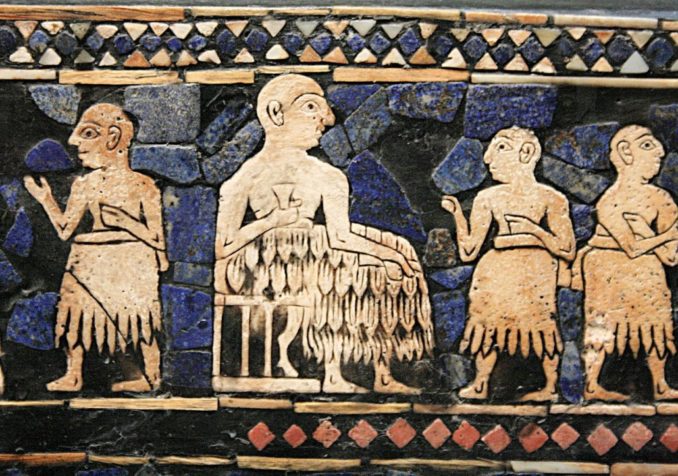
Michel wal (travail personnel (own work)), CC BY-SA 3.0, via Wikimedia Commons
Transfer of our capacity to manufacture goods and mine energy and resources to developing countries served to endorse our virtual assets as we established and dominated new markets with economic colonialism. Ludwig von Mises noted the basic idea of colonial policy in his time was to take advantage of the military superiority of one group or culture over others. After two world wars, western culture found conquest by capitalism less sanguinary. Our population’s expectations and lifestyle had exponentially enlarged while those of war-torn countries had exploded. Both were served by exporting production to lower cost venues where wages and other costs as well as workers’ welfare were lower. We also developed, enjoyed, and exported our virtual assets of knowledge, technology, and services as well as the newly recognized (by John Maynard Keynes) and apparently critical national asset of consumption. Much of the rest of the world benefited from this massive infusion of assets and we benefited in expanding our lifestyle through ever-lowering costs; inflation of costs resulting from expansion of the money supply (and its ultimate effects, see below) was hidden. Thus began the Pax Americana, an economic colonization of much of the world with American industry, technology, capital, and culture.
Rapid pervasive expansion of restored and new markets required similar expansion of capital via newer national and trans-national financial services and credit instruments. With more sophistication of these new methods came a blurring of the lines between private capital and sovereign debt. Fractional reserve funding by all lenders reached new heights as the percent of supporting funds or assets reached new lows. Markets, nations, and trans-national corporations invented new economic instruments to “derive” greater amounts of expendable funds from those assets. A whole new type of service was invented designed not to sustain value or increase the future value of assets, but to minimize the risk of losing asset value. The concept of “interest” had become too limiting with the rise of interventional capitalism so that government and private finance influenced each other in unpredictable ways. Sophisticated financial markets sought survival of capital, profit from that capital, avoidance of risk to that capital, and minimizing transfer of capital to government by way of taxation. The latter became ever more necessary and complicated at the highest echelons of finance as global corporations and foreign aid agents of governments engaged in the new non-combative form of colonialism. Given the transfer of the ultimate foundation of exchangeable value instruments (government mandated legal tender) from precious metals or energy commodities (oil) to “the full faith and credit” of the United States as the accepted reserve currency of the world, it is unsurprising that non-governmental finance would seek to base its exchangeable values on similar foundations of mere faith and credit. The bailouts of huge manufacturing corporations, and later financial institutions themselves in 2008 through socializing their unrecoverable indebtedness by the government seemingly justified those corporations’ and institutions’ attitudes and actions. These rescues by government at the expense of the government’s subjects absolved those entities from their own actions but further sustained their attitudes. Nothing substantive was done to rebase their infinitely complicated derivations of perceived or virtual value on real substance. Despite ever more desperate measures to hide and avoid these consequences, nothing has evolved to prevent the cycle repeating itself.
-Interventional capitalism has intertwined private and governmental finance to the point that the economy is a Narcissian admiring itself in an ever more perfect reflection not knowing which is real and which is image. One is prone to fall in and drown; the other may be drunk dry; they cannot coexist without one finally damaging or destroying the other.
The United States has led the world in evolving an economic system that must end in extinction. No such species can continue to exist without specie. Our version of interventional capitalism was designed to save us from the failure of our prior economy’s collapse in the Great Depression, also suffered by much of the rest of the developed world. Our current house of cards, infinitely more complex and thus infinitely more vulnerable, may not be rebuildable unless we return to the reality of true intrinsic exchangeable value both in philosophy and economy.
(The above ideas are the stunted weeds grown from seeds cast upon rocky ground by my very esteemed friends Patrick Barron, Godfrey Bloom, and Emile Woolf, but in no way reflect their more sophisticated ideas or opinions)
© Nik Bednarski, M.D. 2023



